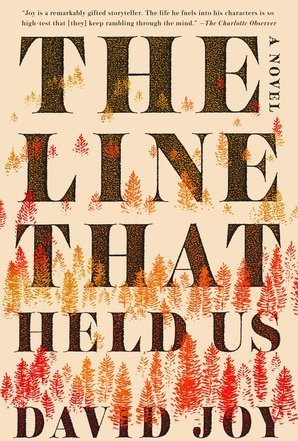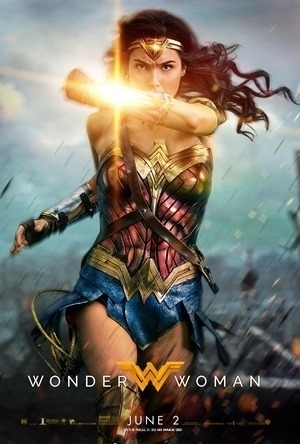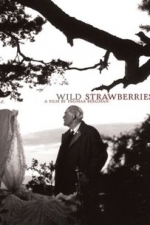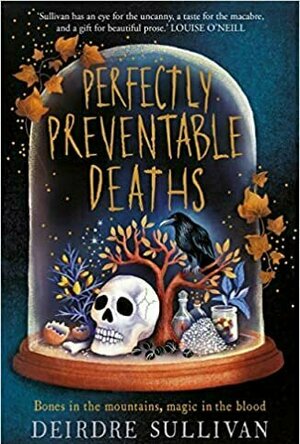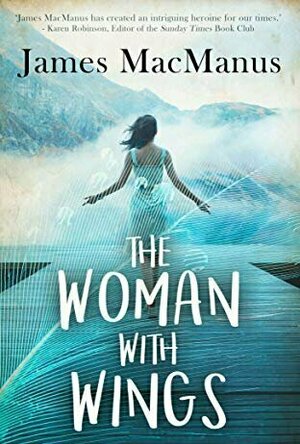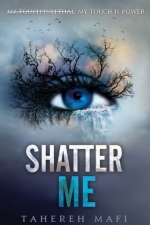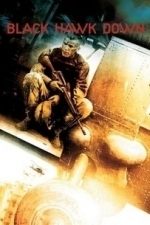Search
Search results
Kristy H (1252 KP) rated The Line That Held Us in Books
Mar 18, 2019
Brutal read with gorgeous storytelling & complex characters
Darl Moody has been after this infamous giant buck for years. So when he hears his neighbor has gone away for a week, he takes the opportunity to go hunting--off-season and illegally--on his land. But Darl never imagined it would end like this: it isn't the buck he kills, it's Carol Brewer, a member of a local family known for violence and hatred. Scared and panicked, Darl turns to his best friend, Calvin Hooper, for help. But when Carol remains missing and his brother Dwayne comes looking for him, the clues quickly point to Darl and Calvin. And Dwayne is looking for vengeance--and someone's blood.
"There were some things worth dying for and some things worth killing for and some things could make a man do all sorts of things he never knew he was capable of until the time came to do them."
Well, this was a dark story about morality and humanity that drew me in to its twisted world immediately. I've never read a book by David Joy before, but wow, he can really write. There's almost a lyrical, poetic manner to the way he puts his words together, which stands in stark contrast to the gruesome tale he tells. Believe me, this isn't a book for the faint of heart. If you're easily offended by gore, this might not be for you.
However, it's certainly an emotional story about family and friendship. I've lived in or near small towns like Darl's and Dwight's--where everyone knows everyone else and family grudges run back generations. Joy captures it perfectly. It's wonderfully descriptive and excellently written, and each of the characters stand out so well. What I found so interesting and surprising was his way of making me feel for all the characters, even though most of them were making poor decisions, even terrible ones. You can feel their conflict and emotions quite clearly.
"Things had a way of never leaving these mountains. Stories took root like everything else... Just as Dwayne told him the night before, a man's mind is its own kind of hell."
Overall, I didn't always enjoy this book, because it's a brutal read at times, but I was wowed by the writing and Joy's storytelling. The characters are complex, and the novel presents some fascinating complexities. It was an interesting and worthwhile read.
"There were some things worth dying for and some things worth killing for and some things could make a man do all sorts of things he never knew he was capable of until the time came to do them."
Well, this was a dark story about morality and humanity that drew me in to its twisted world immediately. I've never read a book by David Joy before, but wow, he can really write. There's almost a lyrical, poetic manner to the way he puts his words together, which stands in stark contrast to the gruesome tale he tells. Believe me, this isn't a book for the faint of heart. If you're easily offended by gore, this might not be for you.
However, it's certainly an emotional story about family and friendship. I've lived in or near small towns like Darl's and Dwight's--where everyone knows everyone else and family grudges run back generations. Joy captures it perfectly. It's wonderfully descriptive and excellently written, and each of the characters stand out so well. What I found so interesting and surprising was his way of making me feel for all the characters, even though most of them were making poor decisions, even terrible ones. You can feel their conflict and emotions quite clearly.
"Things had a way of never leaving these mountains. Stories took root like everything else... Just as Dwayne told him the night before, a man's mind is its own kind of hell."
Overall, I didn't always enjoy this book, because it's a brutal read at times, but I was wowed by the writing and Joy's storytelling. The characters are complex, and the novel presents some fascinating complexities. It was an interesting and worthwhile read.
Phillip McSween (751 KP) rated Wonder Woman (2017) in Movies
Apr 1, 2019
Solid Bounceback for the DCEU
After the safety of her homeland Themyscira is threatened, Diana (Gal Gadot), strongest of the Amazon warriors, hurls herself into the middle of World War I to find the source of the threat.
Acting: 10
Beginning; 2
The movie starts off a bit slow, but does pick up rather quickly after the first ten minutes. I wasn’t in love in how they tried to establish the land of the Amazonians. Felt too factual and not very story driven. I know it’s one of those things that has to be done, but I’ve seen it done way better a number of times before so I can’t excuse it.
Characters: 10
Cinematography/Visuals: 10
The beautiful shots of Themyscira and the Amazonian training rituals borders on poetic at times, something you might read about in a famous ballad. Director Patty Jenkins does an amazing job of capturing the sanctity of this place, a place you don’t want to see get violated. Themyscira is pictured perfectly, it’s not just a Hawaii with women warriors. You can feel the change when Diana hits the real world and things become darker.
I thought it might be hard to capture Wonder Woman’s true strength on the big screen, but it is done almost effortlessly here with gritty scenes and slow-motion shots on impact blows. While I thought BVS overdid things with its slow-motion efforts, Jenkins has a way of capturing the perfect mood when she slows the camera down rather than it being just a mere effect. She really captures the heart of the story in every shot.
Conflict: 10
Genre: 9
Memorability: 10
Pace: 10
Plot: 8
Story was great except…Did we really need that one scene between Diana and Steve (Chris Pine)? I thought, not only did it betray the overall message of the film, but it felt forced and unnecessary. I would much rather have watched Wonder Woman just kick ass and take names and remain true to who her character was.
Resolution: 10
Overall: 89
After a couple crappy movies, DC finally began to right the ship with Wonder Woman. I am hoping the future will bring more movies like this and less movies like Suicide Squad. Not only is it a great film for women superheroes, but it’s just a great film period.
Acting: 10
Beginning; 2
The movie starts off a bit slow, but does pick up rather quickly after the first ten minutes. I wasn’t in love in how they tried to establish the land of the Amazonians. Felt too factual and not very story driven. I know it’s one of those things that has to be done, but I’ve seen it done way better a number of times before so I can’t excuse it.
Characters: 10
Cinematography/Visuals: 10
The beautiful shots of Themyscira and the Amazonian training rituals borders on poetic at times, something you might read about in a famous ballad. Director Patty Jenkins does an amazing job of capturing the sanctity of this place, a place you don’t want to see get violated. Themyscira is pictured perfectly, it’s not just a Hawaii with women warriors. You can feel the change when Diana hits the real world and things become darker.
I thought it might be hard to capture Wonder Woman’s true strength on the big screen, but it is done almost effortlessly here with gritty scenes and slow-motion shots on impact blows. While I thought BVS overdid things with its slow-motion efforts, Jenkins has a way of capturing the perfect mood when she slows the camera down rather than it being just a mere effect. She really captures the heart of the story in every shot.
Conflict: 10
Genre: 9
Memorability: 10
Pace: 10
Plot: 8
Story was great except…Did we really need that one scene between Diana and Steve (Chris Pine)? I thought, not only did it betray the overall message of the film, but it felt forced and unnecessary. I would much rather have watched Wonder Woman just kick ass and take names and remain true to who her character was.
Resolution: 10
Overall: 89
After a couple crappy movies, DC finally began to right the ship with Wonder Woman. I am hoping the future will bring more movies like this and less movies like Suicide Squad. Not only is it a great film for women superheroes, but it’s just a great film period.
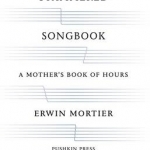
Stammered Songbook: A Mother's Book of Hours
Clare Skeats, Erwin Mortier and Paul Vincent
Book
'My mother, a house that is slowly collapsing, a bridge dancing to a tremor.' It started when she...
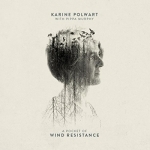
A Pocket of Wind Resistance by Karine Polwart
Album Watch
The first studio album from the acclaimed Karine Polwart in over 5 years. A Pocket Of Wind...
pop folk

Out of Africa
Book
Karen Blixen's Out of Africa is the lyrical and luminous memoir of Kenya that launched a million...
Illeana Douglas recommended Wild Strawberries (1957) in Movies (curated)
BookInspector (124 KP) rated Perfectly Preventable Deaths in Books
Sep 24, 2020
The protagonist in this novel was Madeline, and the book is told from her perspective. Madeline is a very complex character, she is very introverted, lesbian, and socially awkward. Her twin sister, on the other hand, is the opposite. Catlin is the popular girl, she is extroverted, fearless and doesn’t care what others think. Madeline is very dependable on her twin sister, and her inability to function without her made me sad and kind of disappointed. I absolutely despised Catlin, she is arrogant and was very rude and disrespectful not only to her parents but to her sister as well. I wasn’t the biggest fan of Madeline as well, she allowed to be treated like she was a lowlife, and was scared to stand up for herself. I did enjoy Madeline’s discovery of whom she is really attracted to, and her effort to make friends and integrate into society.
The mood of this novel was very well set up. The whole book seeped with darkness, mystery and gloominess, and I think that created the perfect mood for the events described. The narrative was quite slow, and I was hoping for more mystery, twists and turns. I needed more suspense as well, it kind of just plodded along, sharing Madeline’s quite repetitive thoughts. There was quite a bit of magic involved, but I think the full potential of that magic was not utilized.
The writing style was very impressive, I found it incredibly poetic, very lyrical, and melodious. It was pleasant and easy to read, and the chapters were quite short. I really liked the names of each chapter, I learned a lot about the medicinal value of certain plants, that I will be using that in the future. The ending of this novel supposed to be promising, and it was quite intriguing, but again, it just made very little sense, and I would have loved a deeper digging into the history of the whole village, it’s residents and all the murders and other events that happened before.
I think this book had an amazing potential into becoming something absolutely sinister and amazing, instead, it concentrated more on the sisterly love, finding yourself and trying to be independent (and failing). Yes, it discussed teenage confusion and wish to fit in, but I was expecting more.
The mood of this novel was very well set up. The whole book seeped with darkness, mystery and gloominess, and I think that created the perfect mood for the events described. The narrative was quite slow, and I was hoping for more mystery, twists and turns. I needed more suspense as well, it kind of just plodded along, sharing Madeline’s quite repetitive thoughts. There was quite a bit of magic involved, but I think the full potential of that magic was not utilized.
The writing style was very impressive, I found it incredibly poetic, very lyrical, and melodious. It was pleasant and easy to read, and the chapters were quite short. I really liked the names of each chapter, I learned a lot about the medicinal value of certain plants, that I will be using that in the future. The ending of this novel supposed to be promising, and it was quite intriguing, but again, it just made very little sense, and I would have loved a deeper digging into the history of the whole village, it’s residents and all the murders and other events that happened before.
I think this book had an amazing potential into becoming something absolutely sinister and amazing, instead, it concentrated more on the sisterly love, finding yourself and trying to be independent (and failing). Yes, it discussed teenage confusion and wish to fit in, but I was expecting more.
BookInspector (124 KP) rated The Woman with Wings in Books
Sep 24, 2020
Alison works in the international advertising company as an IT specialist, and she loves bird watching. During one of her trips, she falls off the mountain but survives. I liked Alison as a person, she is a loner, and she is doing what she loves. She is like every other female in London, only she gets wings from somewhere. Alison has a great friend Jed, who likes and supports her, and a rich executive of the company named Doxat that fancies her, so this book could’ve been a great romantic novel, and those wings ruined it for me. The story was told from multiple perspectives, but the transition between those perspectives was quite blurry, I would’ve liked if different thoughts started as a different chapter.
Alison talks a lot about birds and their migration, it is great to know about this, especially because Alison’s true passion is birds, but I was skim-reading them because I don’t like copy-paste material. I am sure, bird enthusiasts will enjoy the information, and I can see the research put into that, but those parts were not for me. Another thing that did not make sense to me were parts about Kurt Godel and his mathematical calculations regarding time traveling. There were pages and pages about the same thing, which was well researched and very philosophical, but at the same time repetitive and felt like pasted there out of Wikipedia. :/ I liked the way Alison was interacting with other characters, and there was an interesting love triangle going on in there, but that’s about it.
I was not a very big fan of the writing style of this novel, it seemed well researched, and poetic, but at the same time, it felt raw and unfinished. The setting of this book was changing between London and remote places of the UK like Skye, and I enjoyed its picturesque views. The chapters were quite long, and the narrative quite jumpy. The culmination of this novel didn’t make any sense to me and left me with million of questions instead of answers. :/
So, to conclude, this book was not for me. It has interesting characters, and I enjoyed their relationships with each other, and this book has great potential, but the plot didn’t really impress me. I think this book might interest a bird-loving community as well as people who enjoy philosophy.
Alison talks a lot about birds and their migration, it is great to know about this, especially because Alison’s true passion is birds, but I was skim-reading them because I don’t like copy-paste material. I am sure, bird enthusiasts will enjoy the information, and I can see the research put into that, but those parts were not for me. Another thing that did not make sense to me were parts about Kurt Godel and his mathematical calculations regarding time traveling. There were pages and pages about the same thing, which was well researched and very philosophical, but at the same time repetitive and felt like pasted there out of Wikipedia. :/ I liked the way Alison was interacting with other characters, and there was an interesting love triangle going on in there, but that’s about it.
I was not a very big fan of the writing style of this novel, it seemed well researched, and poetic, but at the same time, it felt raw and unfinished. The setting of this book was changing between London and remote places of the UK like Skye, and I enjoyed its picturesque views. The chapters were quite long, and the narrative quite jumpy. The culmination of this novel didn’t make any sense to me and left me with million of questions instead of answers. :/
So, to conclude, this book was not for me. It has interesting characters, and I enjoyed their relationships with each other, and this book has great potential, but the plot didn’t really impress me. I think this book might interest a bird-loving community as well as people who enjoy philosophy.
Haley Mathiot (9 KP) rated Shatter Me in Books
Apr 27, 2018
Shatter Me is one of those books that will stick with me forever. I may even re-read it just because I enjoyed it so much! I mean, I never re-read books! But I may very well re-read this one! It's one that I can pick up the next one after not having read it for a year, and I can jump right back in because I remember it all. I can't wait until the next book comes out! Oh my gosh! Why on earth did I wait so long to read it? Oh yeah. College.
The writing was magnificent (man has it been a long time since I've been able to say that). It was interesting, and different, and felt like a free flowing train of thought instead of conscious sentences or pages from a diary. It was beautiful and poetic, and full of metaphors about nature and beauty and pain that were so honest and true that I couldn't figure out why I hadn't thought them up myself first. Sometimes there would be a phrase that Juliette thought to herself that was true but she refused to admit to thinking, and it would be crossed out. (like that ^). I really liked this, because it showed what she was really thinking, but it also showed what kind of person she wanted to be.
The plot was fantastic. It never stopped moving forward. There were brief times of rest in the thriller aspect of the story, but the tension itself never went away, and there were no dead plot fillers thrown in.
I really liked Juliette. She wants to be strong, but after a long life of being emotionally abused, she's a weak broken pitiful creature who just wants to be loved and nurtured back to health. She will do anything to be on good terms with someone she loves. She's dying to be touched, but she knows she can't be because she'll kill whoever touches her. And she doesn't want to hurt anyone. She wants to help people and comfort them, but she knows she'll kill them. What a horrible place to be in!
I won't say too much about her love interest, Adam, but I will say he is so going on my list of favorite literary crushes. He is hott stuff. And because of that, I'm going to put my recommendation as ages 16+. If you can't read Hush Hush or Hourglass, I'd hold off on this one for a while…
Content/recommendation: Some hot kissing scenes, and I'm seeing a potential for more in the later books. Ages 16+
The writing was magnificent (man has it been a long time since I've been able to say that). It was interesting, and different, and felt like a free flowing train of thought instead of conscious sentences or pages from a diary. It was beautiful and poetic, and full of metaphors about nature and beauty and pain that were so honest and true that I couldn't figure out why I hadn't thought them up myself first. Sometimes there would be a phrase that Juliette thought to herself that was true but she refused to admit to thinking, and it would be crossed out. (like that ^). I really liked this, because it showed what she was really thinking, but it also showed what kind of person she wanted to be.
The plot was fantastic. It never stopped moving forward. There were brief times of rest in the thriller aspect of the story, but the tension itself never went away, and there were no dead plot fillers thrown in.
I really liked Juliette. She wants to be strong, but after a long life of being emotionally abused, she's a weak broken pitiful creature who just wants to be loved and nurtured back to health. She will do anything to be on good terms with someone she loves. She's dying to be touched, but she knows she can't be because she'll kill whoever touches her. And she doesn't want to hurt anyone. She wants to help people and comfort them, but she knows she'll kill them. What a horrible place to be in!
I won't say too much about her love interest, Adam, but I will say he is so going on my list of favorite literary crushes. He is hott stuff. And because of that, I'm going to put my recommendation as ages 16+. If you can't read Hush Hush or Hourglass, I'd hold off on this one for a while…
Content/recommendation: Some hot kissing scenes, and I'm seeing a potential for more in the later books. Ages 16+
RəX Regent (349 KP) rated Black Hawk Down (2001) in Movies
Feb 18, 2019
Modern Warfare like we had never seen it before...
Black Hawk Down is to me, the best war film that I have ever seen. Intense and relentless, it conveys the horror and tactics of modern warfare and more to point, like all great and classic war movies, demonstrates the dedication, skill and spirit that warfare can manifest when all hell breaks loose, or the proverbial hits the fan!
As a launch pad for some many careers in the naughties and beyond, including Tom Hardy, this is well cast, directed, edited, with an effective Hans Zimmer score and some of the best sound design I have ever heard, the engrossing horror of the situation was conveyed brilliantly. But there is something that I find somewhat disturbing about this film and it may well be a failure but it does demonstrate the effectiveness of the medium;
The Somalians or the “Indigenous Personal” as they were so aptly referred to in the film, came across as heartless, rage filled amoral murderers and while in many respects in respects to those portrayed in the film, it may well be true, I found myself and I doubt that I was alone, being filled with sense of glee every time one of these bastards was blown to pieces or filled with a hail of Uncle Sam’s bullets!
Also the scene where a child accidentally guns down his own father after a U.S. troop slips, is so very telling of the militia culture in that country at that time. Are we supposed to feel sorry for the Man? The Child? Or see it a poetic justice? Or just be relieved that our “Peace Keeping” U.S. soldier got away with his life? In many ways, I think that the ambivalence if that scene, sums up what was so brilliant as well as frightening about this film.
Whilst on one hand, it is hard to deny that we are supposed to feel for, respect and support our American heroes who will go to extreme lengths to “Leave No Man Behind”, we are asked to look at why the Somalians have taken up arms? But in the end it is a huge sociological issue and this film does not dwell too much on that. It touches on the fact that there are always two sides to any conflict, but like Zulu (1960) forty years before it, it chose its side and that was the normally powerful under dog and we saw them survive what many of us would have struggled to do.
This is truly a war film for war film fans and a MUST SEE for everyone.
As a launch pad for some many careers in the naughties and beyond, including Tom Hardy, this is well cast, directed, edited, with an effective Hans Zimmer score and some of the best sound design I have ever heard, the engrossing horror of the situation was conveyed brilliantly. But there is something that I find somewhat disturbing about this film and it may well be a failure but it does demonstrate the effectiveness of the medium;
The Somalians or the “Indigenous Personal” as they were so aptly referred to in the film, came across as heartless, rage filled amoral murderers and while in many respects in respects to those portrayed in the film, it may well be true, I found myself and I doubt that I was alone, being filled with sense of glee every time one of these bastards was blown to pieces or filled with a hail of Uncle Sam’s bullets!
Also the scene where a child accidentally guns down his own father after a U.S. troop slips, is so very telling of the militia culture in that country at that time. Are we supposed to feel sorry for the Man? The Child? Or see it a poetic justice? Or just be relieved that our “Peace Keeping” U.S. soldier got away with his life? In many ways, I think that the ambivalence if that scene, sums up what was so brilliant as well as frightening about this film.
Whilst on one hand, it is hard to deny that we are supposed to feel for, respect and support our American heroes who will go to extreme lengths to “Leave No Man Behind”, we are asked to look at why the Somalians have taken up arms? But in the end it is a huge sociological issue and this film does not dwell too much on that. It touches on the fact that there are always two sides to any conflict, but like Zulu (1960) forty years before it, it chose its side and that was the normally powerful under dog and we saw them survive what many of us would have struggled to do.
This is truly a war film for war film fans and a MUST SEE for everyone.
